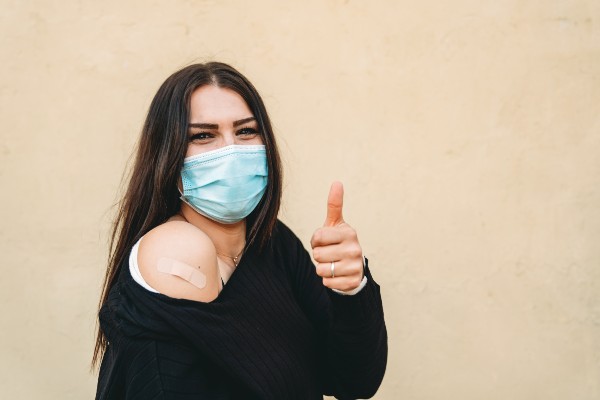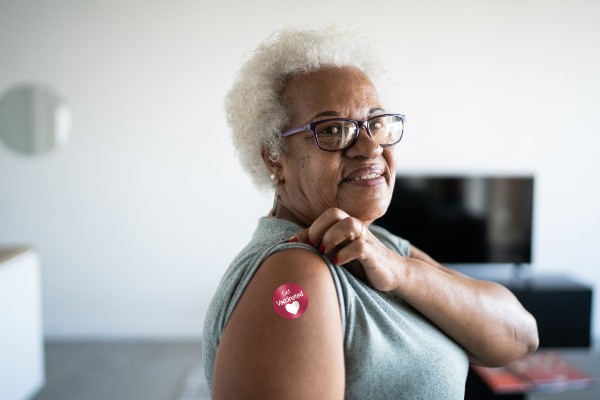Well over a year into the COVID-19 pandemic, questions continue to arise around the changing face of this virus and determining the best way forward.
Many people are asking whether the immunity you get from contracting COVID-19 and recovering is enough to protect you in the future.
The answer is no, according to Rebekah Sensenig. D.O., Infectious Disease Specialist with Riverside Health.
Here’s why.
Getting COVID-19 and recovering, which is commonly referred to as “natural infection,” gives you some level of immunity. But there are still unanswered questions about how robust and long-lasting that immunity may be. Most of the studies conducted to date show that natural infection does not appear to generate protection as strong as after vaccination.
The good news is that immune response generated post-infection and vaccination, known as hybrid immunity, is more potent than either natural infection or vaccination alone. Studies have shown that people who have had COVID-19, recovered, and then been vaccinated have more diverse and high-quality memory B-cell responses than people who’ve just been vaccinated. In other words, we know that the protection is more effective after vaccination.
In addition, reinfection rates seem to be much smaller in recovered COVID-19 patients who have also been vaccinated post-infection than people who have recovered from COVID-19 without additional vaccine protection.
For patients with long COVID, where symptoms persist for weeks or months after a COVID-19 infection, getting the vaccine seems to help them finally recover from those lasting symptoms.
Do I need both doses of the mRNA vaccines, or is one dose enough if I’ve already had COVID-19?
While several medical studies are underway looking at this issue, the Centers for Disease Control (CDC) continues to recommend two doses of mRNA vaccines (Pfizer or Moderna) or one dose of the Johnson & Johnson vaccine, even after a coronavirus infection.
Does the delta variant change things?
All viruses mutate over time and the delta variant is proving to be more contagious. What’s more, the longer COVID-19 spreads, the more opportunity to mutate and allows more variants to emerge. According to the CDC, the delta variant accounts for more than 90% of cases currently spreading in the U.S.
Vaccination gives that extra layer of protection that natural infection cannot.
If I’ve had COVID-19, how long should I wait before getting vaccinated?
People who have recovered from COVID-19 can safely receive a vaccine once symptoms have improved and at least 10 days have passed since their positive test. However, if you were treated with monoclonal antibodies while fighting COVID-19, experts say you should wait 90 days before getting vaccinated. That’s because monoclonal antibodies are synthetic proteins that mimic your body’s immune response, and they might diminish the effect of the vaccine’s ability to build that immune response in your body.
Vaccines remain highly effective at preventing hospitalization and death from COVID-19, including the delta variant. Regardless of whether you have had the coronavirus, vaccination is your best line of defense.



